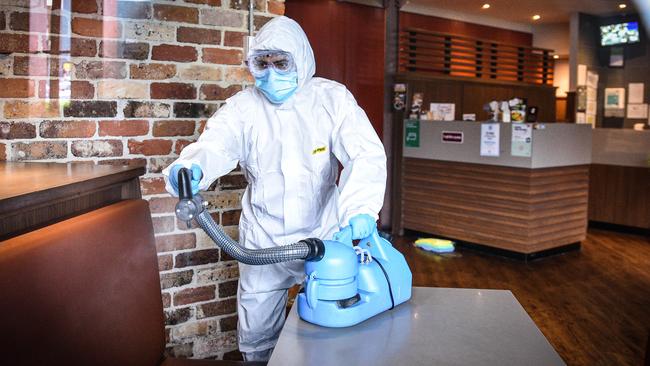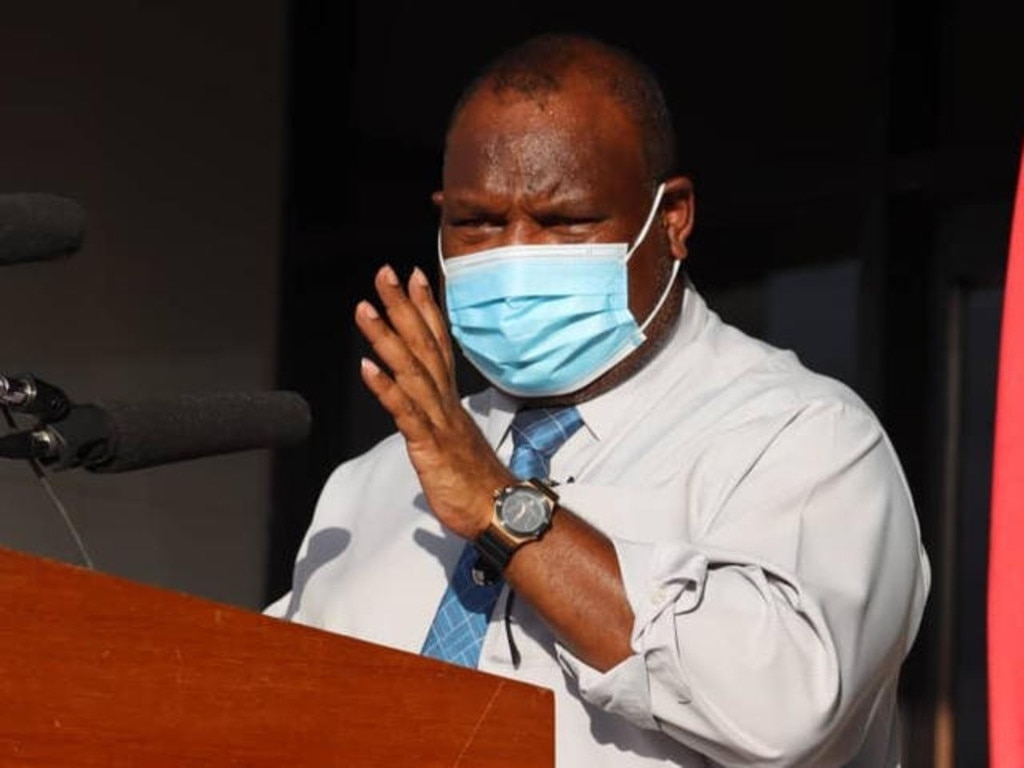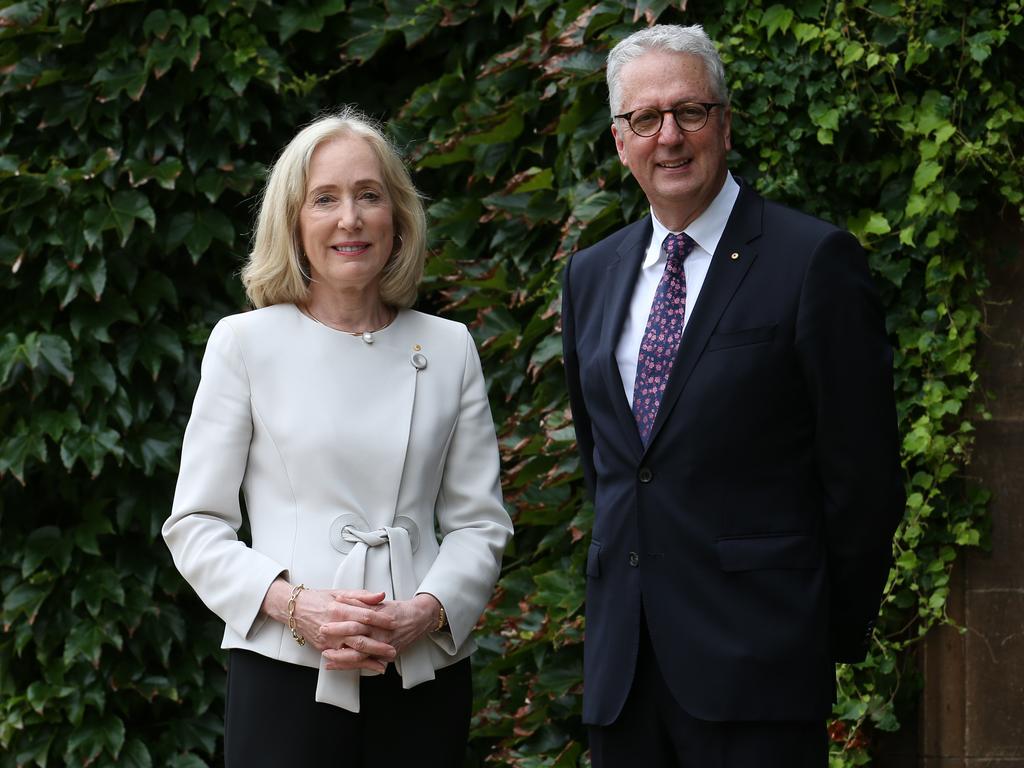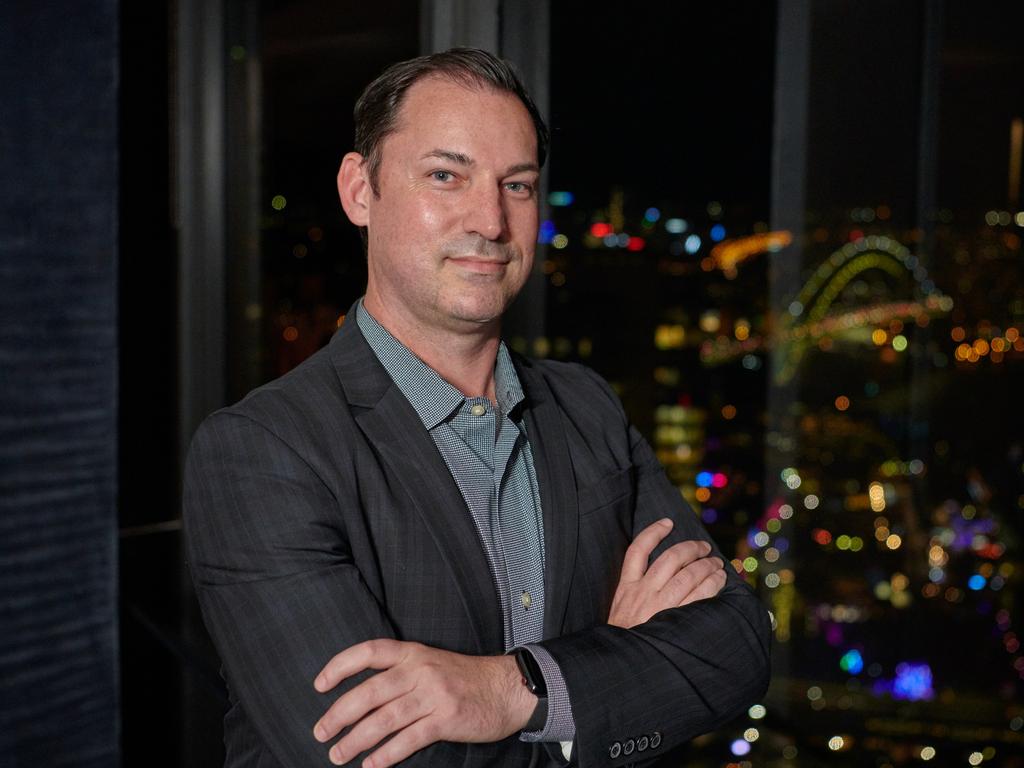Coronavirus: Scramble to contain leaks from hotels in Brisbane and Sydney
Hotel quarantine protocols are coming under renewed scrutiny after fresh outbreaks in facilities in Brisbane and Sydney.

Hotel quarantine protocols are coming under renewed scrutiny as health authorities scramble to contain fresh COVID-19 outbreaks in facilities in Brisbane and Sydney.
A security guard, who works across two of Sydney’s quarantine hotels, became the latest worker confirmed to have been infected with the virus at the weekend after testing positive on Saturday night, breaking a 55-day streak without a locally acquired case in NSW.
Authorities were at a loss to explain how the 47-year-old contracted the pathogen given he tested negative after receiving the vaccine as part of the government’s rollout for critical health workers at the start of the month.
Concerns were also raised about the fact the guard, who was completely asymptomatic, had been holding down a secondary job as an office worker, sparking fears he may have unknowingly passed on the virus to colleagues and triggered an outbreak.
It came as Scott Morrison received his second dose of the Pfizer vaccine in Sydney on Sunday, and another traveller tested positive to the virus at Brisbane quarantine hotel days before being released into the community.
The cases have sent contact tracers racing to alert hundreds of people who interacted with the carriers. In Sydney, that included anyone who had interacted with the security guard at the city’s Sofitel Wentworth and the Mantra Hotel in Haymarket where he was employed.
Genomic sequencing was also under way to determine the source of the guard’s infection, while CCTV footage from the hotels was being reviewed in an attempt to pinpoint the cause of the contamination.
Chief Health Officer Kerry Chant said the man had tested negative as part of routine testing of quarantine staff following his overnight shift on March 5 and may have contracted the virus while on an overnight shift the following evening.
The guard was thought to have already been infectious by the time he worked a shift the following weekend, while other potential exposure sites he visited included a swimming pool in Bexley, Pancakes on the Rocks in Beverly Hills, and trains he caught between suburban Hurstville and the city.
Health officials, who were chasing all his close primary contacts since March 8, had already been in touch with 130 people who had been in contact with him, but flagged there would likely be more close contacts identified in coming days.
NSW Health Minister Brad Hazzard confirmed the man received his first dose of the Pfizer vaccine on March 2, and was set to receive his second “in the next week or so” but added the medicine was not guaranteed to prevent infection. “You should be aware the antibody reaction required from vaccination doesn’t achieve its maximum some time after the first and second vaccination,” Mr Hazzard said.
“The purpose of vaccination is of course, having two doses in the case of Pfizer, and with AstraZeneca, it makes you far less likely to get as sick as you would get and far less likely to die. As we have said all along, vaccination helps but it does not necessarily stop you from getting the virus.”
The detection of a new quarantine case in Brisbane prompted a snap lockdown of the city’s Grand Chancellor hotel used to house international arrivals.
Partial genomic sequencing suggested the latest infaction was linked to the patient suspected of passing the virus on to a doctor at the Princess Alexandra Hospital in Brisbane. Authorities were working to identify how the virus spread between the two patients, who had travelled through the same region before flying to Brisbane and staying on the same floor of the Grand Chancellor.
Three close contacts of the doctor have been tested for the virus and returned negative results, while 61 staff members and patients from the hospital with whom she came into contact have also been tested.
As a precautionary measure, the hotel will not receive new arrivals and no one will be permitted to leave for the next 72 hours, with Premier Annastacia Palaszczuk saying the next three days would be “crucial” to containing the spread of the virus.
The Prime Minister said he was “not disturbed” by the new case in NSW, confirming that there was often a lag time between when people were vaccinated and achieved immunity.
“I’m not surprised by it, because you would expect these things to happen on the odd occasion,” Mr Morrison said. “That’s why … we can never be complacent about COVID-19.”







To join the conversation, please log in. Don't have an account? Register
Join the conversation, you are commenting as Logout